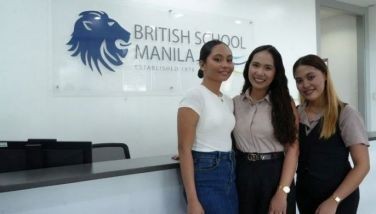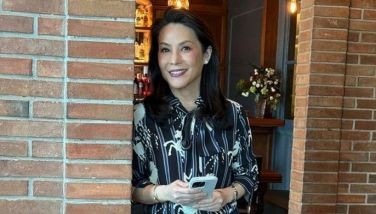The Female Body Politic
MANILA, Philippines - In 2015, the modern woman no longer has a set role to play. Society can no longer make demands. A space for free and open participation between men and women is the status quo. Leadership and opportunity, freedom and equality — the woman of now is fully equipped to represent her own choices, her own views. Suppression is yesterday’s news.
In celebration of Women’s Day (last March 8) and Women’s International Month, YStyle sits down with nine women from different fields to talk about and share their personal experiences. Independent women who’ve stood up to conquer adversity, to carve out their own niche or to chase after their own dreams.
These are women who inspire us to make a change in ourselves, and eventually, to the world at large. For Women’s International Month, YStyle presents a special edition of #GirlsGoneYStyle.
Celine Escaler on knowing your passion and proving yourself as an equal
Executive chef at Stockton Place
YSTYLE: How do you feel about working in what most would say is a male-dominated arena — the kitchens in a restaurant?
That’s definitely what’s apparent right now — if you go to most kitchens, it appears to be dominated by men. When I first started working in kitchens, especially here, being a woman, coupled with having an American accent, people would immediately judge you. They think either a) she wouldn’t work as hard or b) she’s just there because she doesn’t have anything better to do.
Going into it, I tried to not see it as anything to do with gender. I just worked twice as hard as anybody else. When people see that you’re serious at the end of the day, about being there, honoring the craft and putting in the work, people start to take you seriously. Gender ceases to become an issue.
Instead of thinking, “I’m a woman, I’m a woman, I’m a woman,” I just push that all out because I like to think of myself more as a capable person, a capable chef.
What would you say to anyone who would want to get into the culinary world?
If you’re really serious about cooking, just take the plunge. It’s a very intimidating world, don’t go for it if you’re just enamored of all those cooking shows like Masterchef or Top Chef — there’s definitely nothing glamorous about it at the end of the day. But if you recognize that and you’re willing to commit 16 hours of every single day, that’s a good sign. From scrubbing floors to washing dishes, working your way up to kitchen duty. Then by all means, go for it. There’s no sweeter reward.
When you finally gain the honor of working in a kitchen, my top advice? Consult books, read recipes on the Internet, talk to those above and below you. Never stop learning.
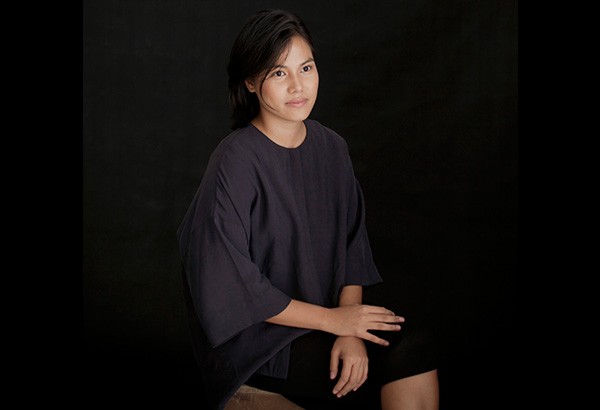
Patsy Abad on running a non-profit hotel and society’s trajectory for women
General manager at Café du Tukon, Fundacion Pacita
YSTYLE: Can you tell us briefly about Fundacion Pacita?
Fundacion Pacita is a non-profit hotel. Most of the proceeds go to Ivatan art scholars and other academic grants. The rest of the proceeds go towards the preservation of old Ivatan houses. We have ancestral villages in Sabtang (Editor’s note: the southernmost island municipality in Batanes) and funding for livelihood programs; the farmers in Tukon are involved in a community-supported agriculture project. All the cultivated produce are bought and used at Café du Tukon.
Is cultivating art a big priority in Batanes?
Well, that’s what we’re trying to do — I mean Pacita was born in Basco, it’s something we’re looking to pursue and develop as a community. Fundacion also runs a small art gallery in town — it’s a cooperative of young artists, geared towards displaying their art for commerce and tourism.
Between developing the restaurant and forging relationships with your local farmers, did you feel challenged at any point, being a woman?
In this specific scenario, I wouldn’t necessarily say so but — yes, definitely it was hard, yes, there were challenges, but I feel like everybody goes through that, man or woman. I don’t attribute my current struggles to the fact that I’m a woman. More than anything, it’s my age that hinders me. In that sense, I just work hard to prove people wrong.
I don’t mean to speak for all women from different walks of life but in certain aspects, I feel society has grown to be more inclusive. We have a long way to go, but at the very least, we’re headed towards a better direction.
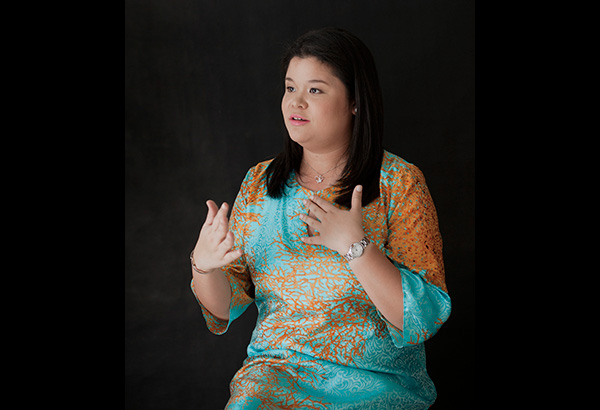
Alex Eduque on working for our children’s future and female role models
Founder and chairperson of Move.Org
YSTYLE: Can you tell us a bit about Move.org? Move.org or MovEd stands for molding optimism and values through education. We provide access to early childhood care and educational programs to underserved communities around the Philippines.
Now we have five schools in just two years of operation, next year we’re aiming for 12 established schools.
As a woman who has founded and chaired her own non-profit organization, were there any obstacles you had to overcome?
More than being a woman, it was definitely my age that held me back. I come from a family where the women are strong, and I also had the experience of going to Barnard in Columbia, where it was also all women.
It definitely helped me that I came from a family with very, very strong women — if anything, I would put it as an advantage because, for instance, when I would work in Baseco, they have a vastly different culture there. But because of hospitality, culture and custom, they’re much more gentle and much more forgiving of women who come in as volunteers. We don’t pose a threat to them, per se, so I use that to get the job done.
Who were your role models growing up?
It was never uso for women in our family to stay home. I got that from my grandmother, the philanthropist Consuelo Madrigal, and of course, my mother. In fact in our family, I think the expectations for women to succeed are higher — it motivates me to work harder and to keep pushing my goals forward.
What is your plan for Move.org for the next five years?
By the numbers, I want to have presence in all the major islands around the Philippines for Move.org. Hopefully in the next three years. Thinking larger, 50 schools by 2020. More than just providing education to these communities, we want to be the support system for families and their children’s education. To give them the hope that hardship and struggle is not insurmountable.
I want families to take away the message that, no, you’re not alone and if we can work together, no one is going to get left behind.
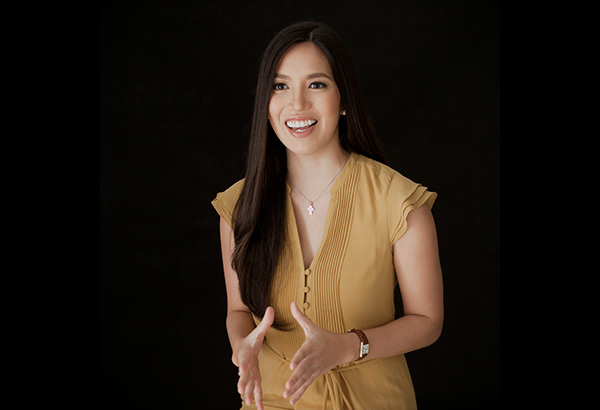
Natashya Gutierrez on gender politics and breaking through obstacles
Multimedia reporter for Rappler
YSTYLE: Tell us briefly on how you fell into political journalism.
Funnily enough, when I started I was a sports reporter. At the beginnings of Rappler, we were so small, we all had to multitask and cover multiple beats. I was doing both sports and politics, which was an interesting mix but it functioned as an outlet for me, balancing the seriousness of politics with the ease of sports.
But since we’ve grown bigger, it’s been two years since I started to solely focus on politics. I’m really trained on the President and his administration. I cover the briefings in Malacañang, the press conferences, national elections, and so on. But I also do investigative stories, which is where my passions lie — investigative stories that mostly relate to corruption.
As a political journalist, do you feel any advantage or disadvantage working the field as a woman?
I think the advantage is that, in the Philippines especially, there is a lot of respect for female journalists. There is that same opportunity for both men and women but at the same time, there are those who use your gender against you.
There was that time I broke a string of exclusive exposés I did on the Senate, with one particular senator — and later on I found out that a certain group was spreading rumors that I was sleeping with someone to get my scoop. I mean, it’s a woman thing, right? (Laughs) Or they’ll say things like “Oh, she gets stories because she’s a woman,” or they imply that they’ll grant you an interview because you’re a woman. That’s the type of discrimination you get when you work out in the field.
But for the most part, I definitely feel like there are a lot of opportunities for female journalists. And that’s great.
What would you say to someone who wants to break into journalism, political or otherwise?
Follow your passion. I always say you excel so much faster if you’re in a field that you’re passionate about.
Personally, I never dread Mondays. Which is a good thing, I love going to work. And I think that’s what propels my success. Love what you do, that’s my number one advice. And have the courage to do it, especially in journalism. That’s the main virtue we need, as a woman especially. And if you love something, just fight for it: passion and courage.
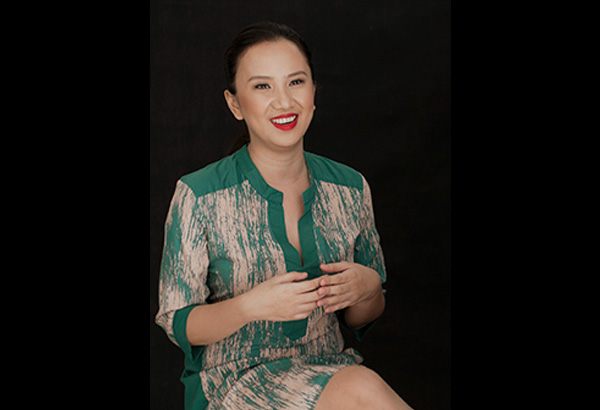
Bianca Balbuena on career milestones and finding the right story
Film producer
YSTYLE: What got you started into producing films?
I took up film and visual communication in UP Diliman. I went through the wringer — I tried doing production assistant work, being an assistant director, line producer, production manager, I even tried doing internships under cinematographers. Ever since I really wanted to be in film, I just didn’t know which position exactly. It was (with) the success of Engkwentro that I realized that internationally coproduced films could really benefit our industry. I realized that there was so much more outside our country — so in our recent production Above the Clouds, directed by my good friend Pepe Diokno, we managed to produce a film via an international coproduction.
How do you feel about working in our local film industry as a woman?
I met a lot of challenges when I was trying to break into it. In the beginning, I was really interested in becoming a cinematographer but at that point, everybody was trying to discourage me. They’d tell me things like cameras are for men, lighting is for men — coupled with the fact that starting out, you have no assistants and have to rely on yourself to carry all that gear. That was discouraging.
They say out of a hundred cinematographers, only two are female. That’s a bad and basic statistic. But then again, I’m pretty happy that 80 percent of the producers I know are women. In that sense, producing is our territory.
In a different time, would you have been a cinematographer if your peers hadn’t discouraged you?
Definitely yes. I regret stopping. There was a time I had already worked for six months under Neil Daza and Jun Aves — apprenticeships in film. Basically, I wasn’t getting paid. I had to prove to my parents that making films is work and not a hobby. So I took other jobs — producing, logistics — just so I could continue in this business.
What would be a milestone for you?
My latest commercial film That Thing Called Tadhana I’m proud to say was written and directed by Tonette Jadaone, it was a milestone for me because it was the first time I’ve ever worked with a female director. It was her dream script, her dream film — and the source material really resonated with me.
What would you advise someone who wants to pursue a career in film producing?
Have an eye for good stories. Be discerning. Don’t be afraid to tackle sensitive issues. And lastly, always understand that the start is never easy — always push forward.
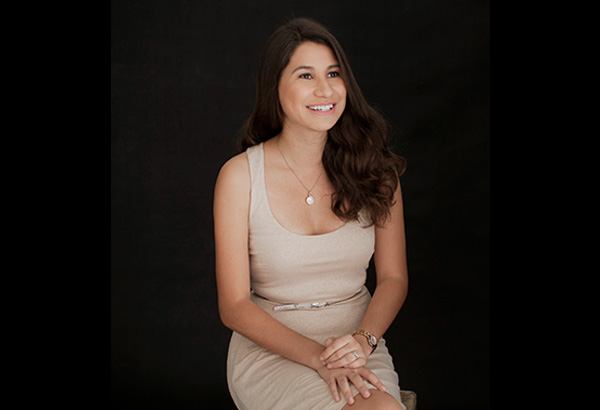
Vanessa Maynard on the peace process and a subtler approach to female empowerment
Executive assistant to the Secretary for the Office of the Presidential Adviser on the Peace Process (OPAPP)
YSTYLE: How did you get involved with the government? Specifically, working with Secretary Ging Deles on the peace process?
Between internships in Thailand teaching little kids about ASEAN and a few months in Wales, I was at a point where I really didn’t know what to do with my life — until a friend messaged me with the opportunity of working under Secretary Deles whom I knew of as an advocate for women’s rights. It was a cause close to me so I said “Why not?” and three years later, I’m still here.
If you had to choose, what do you think is the most pressing issue for women’s rights currently?
Definitely, we need more opportunities for women. But before we could address big issues like those — I feel that we need to think closer to home. I think that, yes, here in the Philippines, we’ve made great strides toward female empowerment but I think it’s more the little things that count, improving in a subtler sense: making sure that there is no more domestic violence, making sure that men learn to respect women on a daily basis. I feel that’s what people should learn, that’s what people should know about.
We have to question things commonly said like “Women should do the housework” or utterances like “babae kasi.” Do we say that because women are so good at housework or is it merely a social construct? These are the questions we need to ask.
How do you feel about female representation in government?
I feel very lucky that my boss, Secretary Deles, is very gung-ho about this and she makes sure that there is female representation on every level of the peace process. She leads mediation for peacemaking and spearheads negotiation for the Bangsamoro Basic Law. In her term, she managed to gain the trust of the MILF, enough to further provisions for women’s rights in the BBL. Needless to say, she’s a big role model for me.
What are your hopes for the government in the future?
Personally, my dream is for the youth to become more active in government and to discern more ways to help our country. It’s not going to happen in an instant, but if you put the time in and you work hard, we’ll definitely get somewhere.
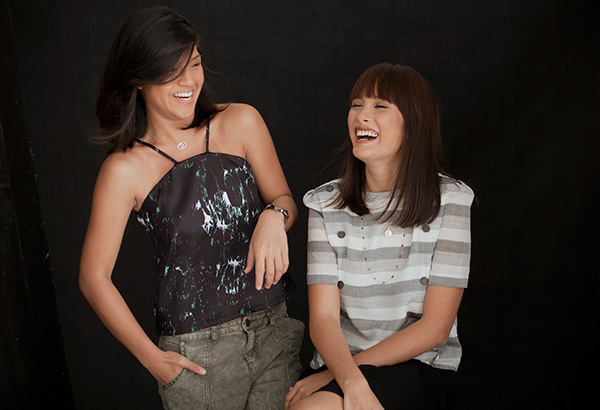
Roberta Limjap and Anna Zavalla on carving out a niche and female representation
Founders of Rawtura
YSTYLE: Tell us about how Rawtura started?
ROBERTA: We’ve been friends for a really long time, through high school and college. But there was a point where we lost each other after graduation because we both had the opportunity for further study. I was lucky enough to go to Paris to study art, Anna went to Madrid to study design. We did our own things for a while. Then early last year, in 2014, we found ourselves both back in Manila, we reconnected and we decided to finally act on one of our long-held dreams which is to develop a line of furniture. It’s been one of our shared passions growing up, and we count ourselves lucky to be able to explore it.
What are your inspirations when it comes to design?
ANNA: We take inspiration from a lot of places. We’re inspired by travel, the Internet, world culture and the needs of our clients. Rawtura is all about the details — the polish and the finish. We try to see the world in a very specific lens, threshing out all the little details — taking them and distilling our vision. We tackle each collection from a different point of view, a lot of reference points. Quality and uniqueness is what we gear for in our products.
The end result is always something we both love.
What are your goals for Rawtura?
ANNA: Coming into our small business, we noticed that when you talk about “the Bigs” — people in home design that you could mention in the same breath; brand names like Kenneth Cobonpue, Vito Selma or Ito Kish — there is no female Filipino furniture designer whose brand is as visible, or easily recognizable as theirs.
As women, we look up and admire all they’ve done. Achieving some semblance of their success for Rawtura would be a dream come true. But as opposed to interior design or architecture, people have the notion that women aren’t bagay to designing furniture. It’s some invisible men’s club stereotype.
ROBERTA: We hope, in our small way, it would be nice if our brand could become visible enough to help change that.
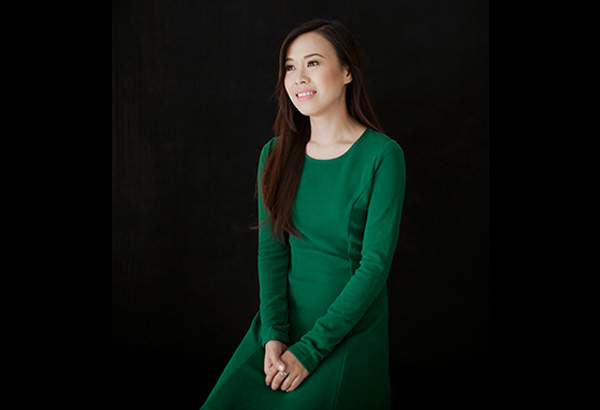
Cha Sancho on changing perceptions and conquering adversity
Pilot for Philippine Airlines
YSTYLE: Did you encounter any challenges during your training to become a pilot?
I started out as a flight attendant, but then eventually, I decided to try becoming a pilot. I looked up a flight school and I applied with my degree in nursing. Luckily, I passed the initial screening. Coming into flight training, I tried not to consider gender as an advantage or disadvantage. I didn’t expect any special considerations. Training had us running 5k to 6k every other day, jumping jacks, pushups — and right alongside the boys. It was very physically demanding.
At the beginning, you wouldn’t have pegged me to be that sporty girl. That was my personal challenge and I’m proud to say, I survived it.
Did you have to contend with any stereotypes working as a female pilot?
It mostly came from other people, our passengers on flights. When they hear the pilot is a woman, you can feel a sense of hesitation. Especially when they see me, this puny little girl in comparison, walking alongside these big male pilots. The image kind of shocks people. A big part of it is tempering perceptions, of others and of myself.
When I was a flight attendant, I was definitely more of a girly girl; but when I went to pilot school, I felt like I had to prove to people that I could be as resilient as everybody else. The constant challenge for me is to keep proving myself: I can be tough as nails and do the job as well as anybody else can.
“Can you do this? Can you fly a big plane? Alam ba ng nanay mo ano ginagawa mo?” These are the kinds of questions I normally deal with, but you know, I just laugh it off because at the end of the day, I know I can do a good job.
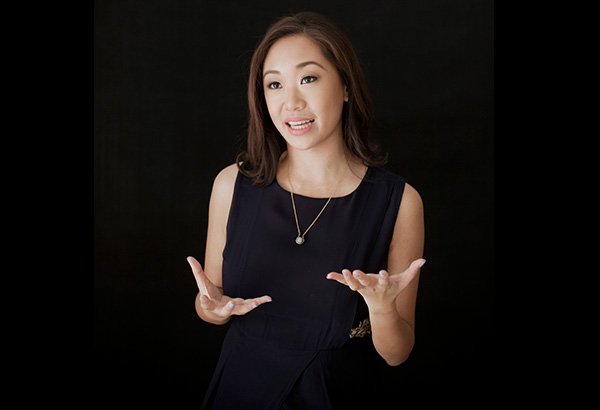
Kimberly Yao on overcoming stereotypes and conquering the ruthless scene of the nightlife
Managing partner at Valkyrie at The Palace
YSTYLE: Tell us briefly on how you got into the nightlife business.
I guess I just met the right people at the right time. It was during my younger days when I would always go out to clubs and bars, I made friends and bonded with a certain group of people who invited me to partner up and share in their vision for the nightlife scene.
Wouldn’t you say that this is a male-dominated industry? Did you feel being a woman worked to your advantage?
Definitely. I would say the nightlife industry is ruthless, fast-paced and taxing when it comes to other aspects of your personal life. It’s definitely male-dominated. And when I started, all my partners were male.
Being a woman, you definitely see things differently. In that way I felt that it was an advantage, it was my contribution — I was coming from a different point of view. In a lot of ways, there are some aspects of the job that needed to be executed with, shall we say, more grace or a more delicate touch. The most common example? Human resources — be it juggling employees or sorting out unwanted drama. In my experience, it takes a woman to do the job. (Laughs)
What were the challenges, if any?
A lot of the partners initially thought that I wouldn’t be able to take the pace “ah hindi mo yan kaya” or “never ka na magkaka-boyfriend.” But needless to say, I broke through all of that. As I grew with my partners and the company, staff-wise and crew-wise, we needed someone to step up and put everything together. It took a lot of organization and planning, and as the first female partner working closely with Erik Cua, Tim Yap and chef Fernando Aracama, I took the job and helped piece everything together.
Do you find it difficult to survive in that world?
In this line of work, people always want what’s new. What’s hot. Things get old really fast. Especially here in Manila, catering to a small group, a small crowd. You just have to embrace the situation to survive, you learn to go with the flow. If you don’t, you get left behind.
By MARTIN YAMBAO and DAVID MILAN
Assisted by FRANCINE GACRAMA
Photos by Shaira Luna
Makeup by Anton Patdu, Al De Leon and Terence Buenaventura for MAC Cosmetics
Hair by Phyto Gerald Magtibay and Ruel Papa










